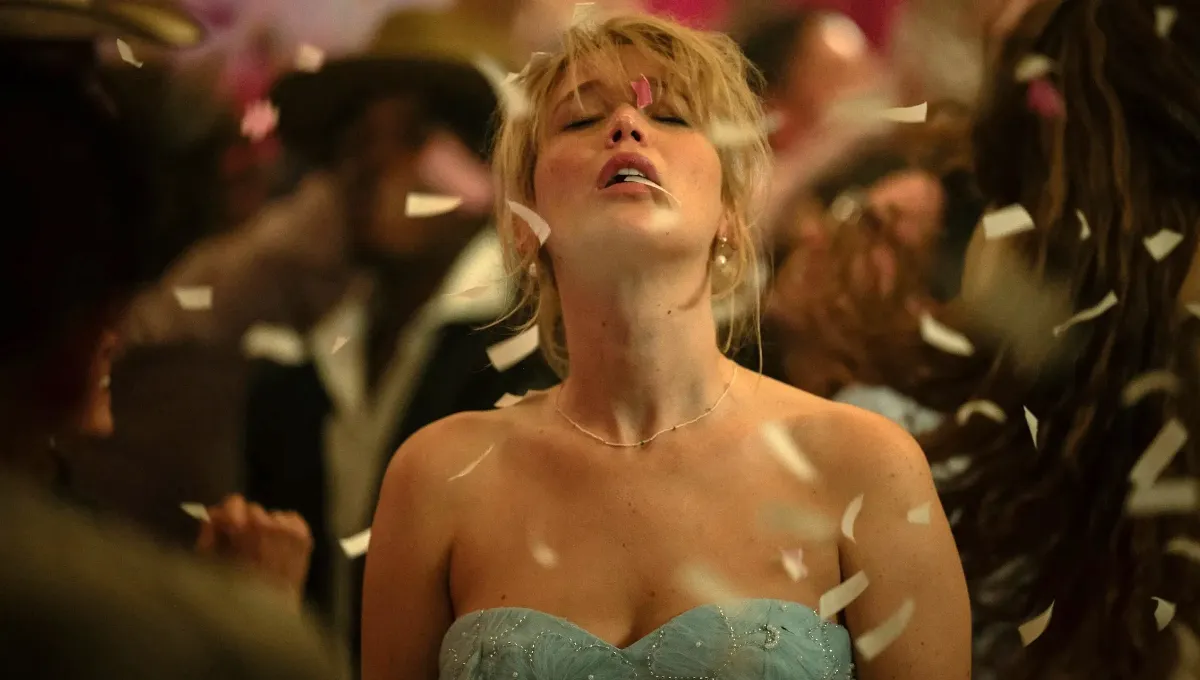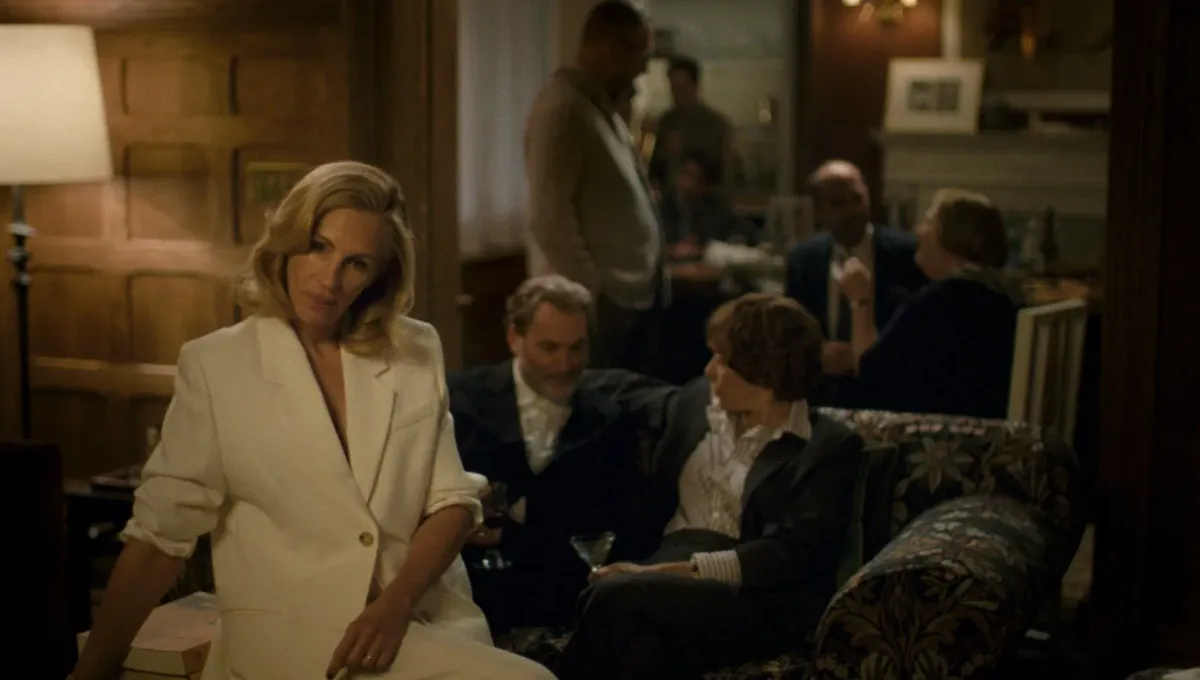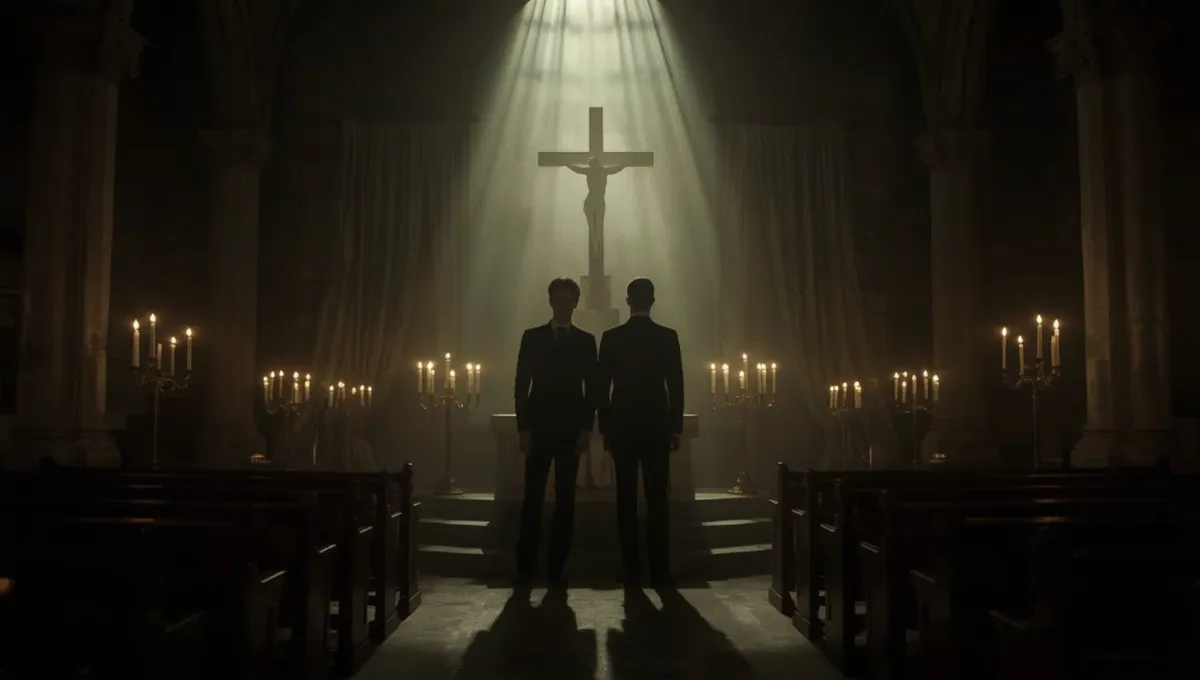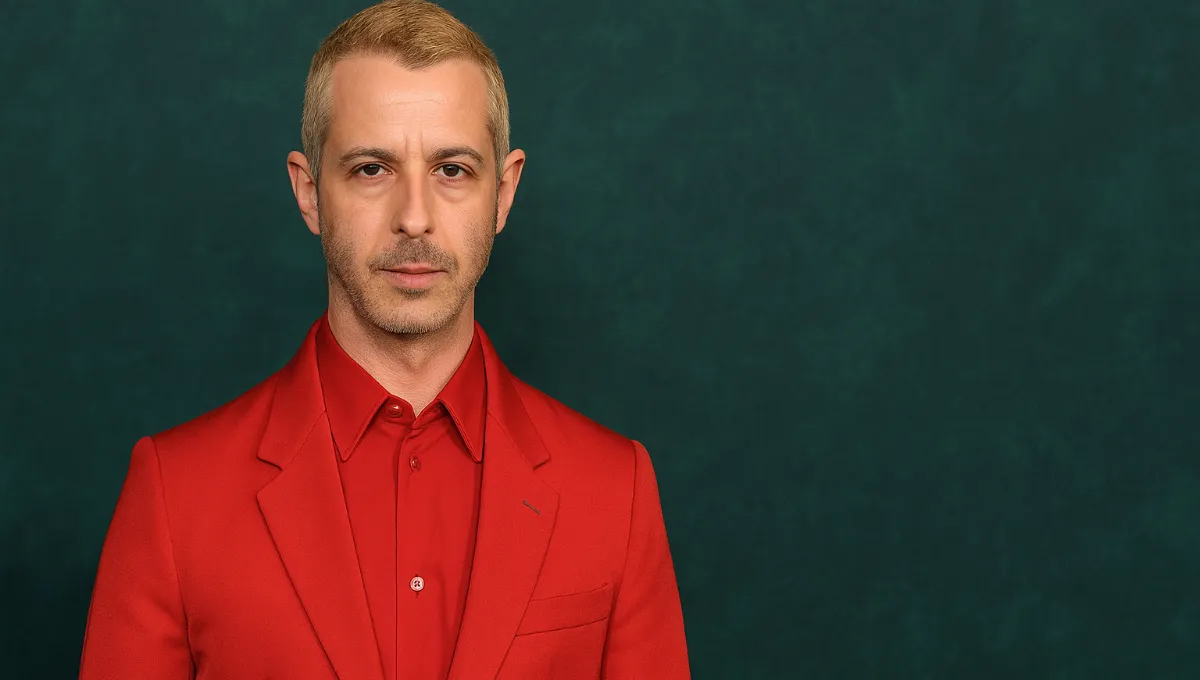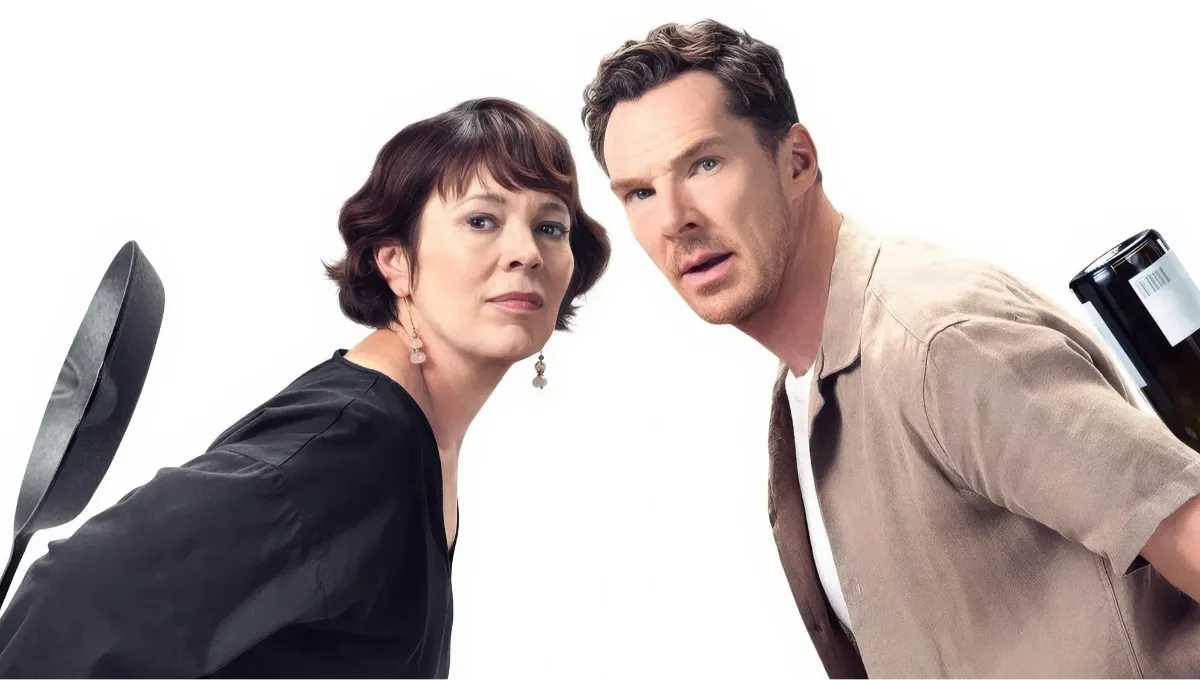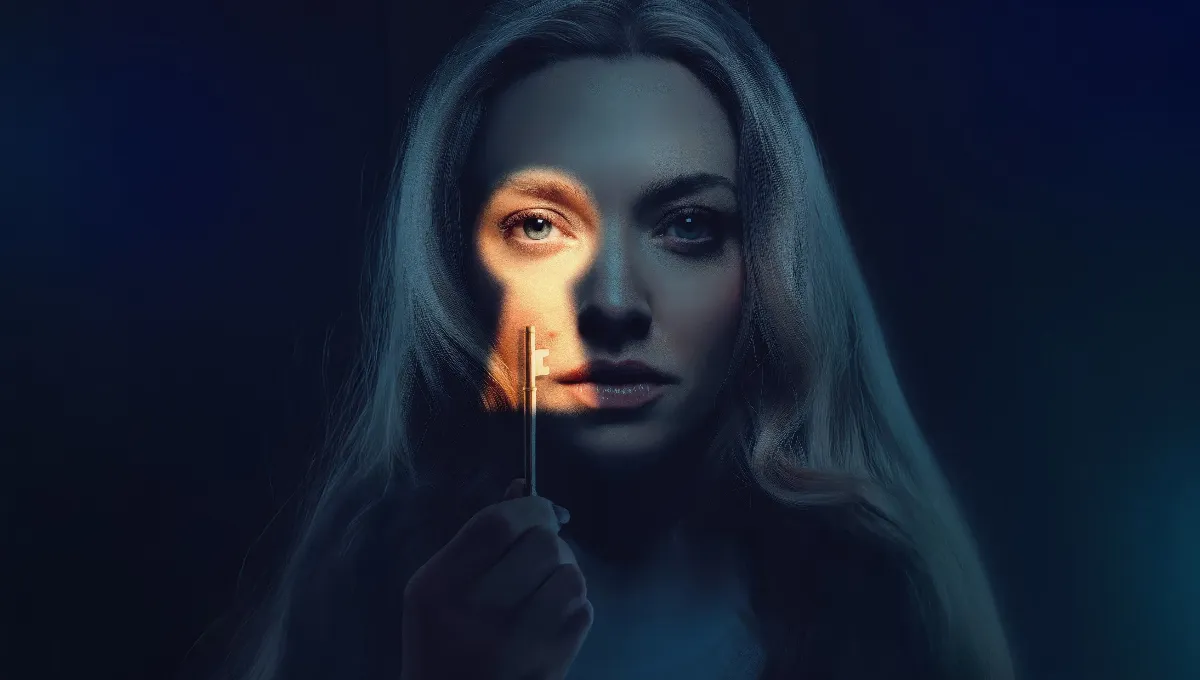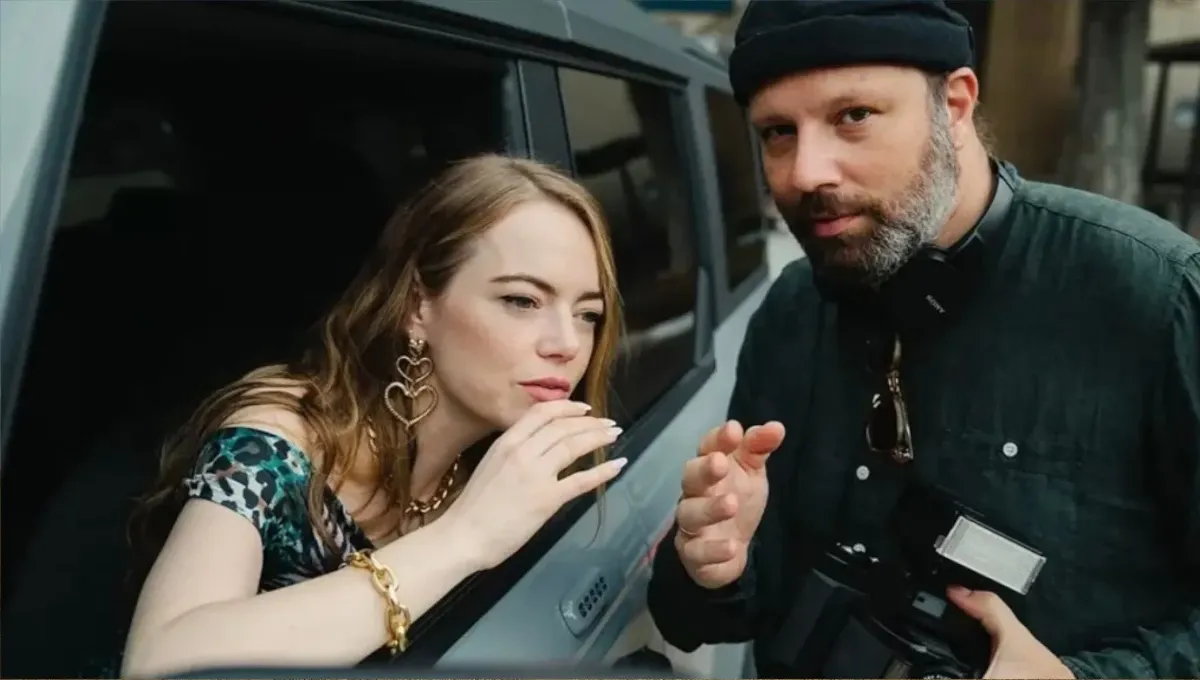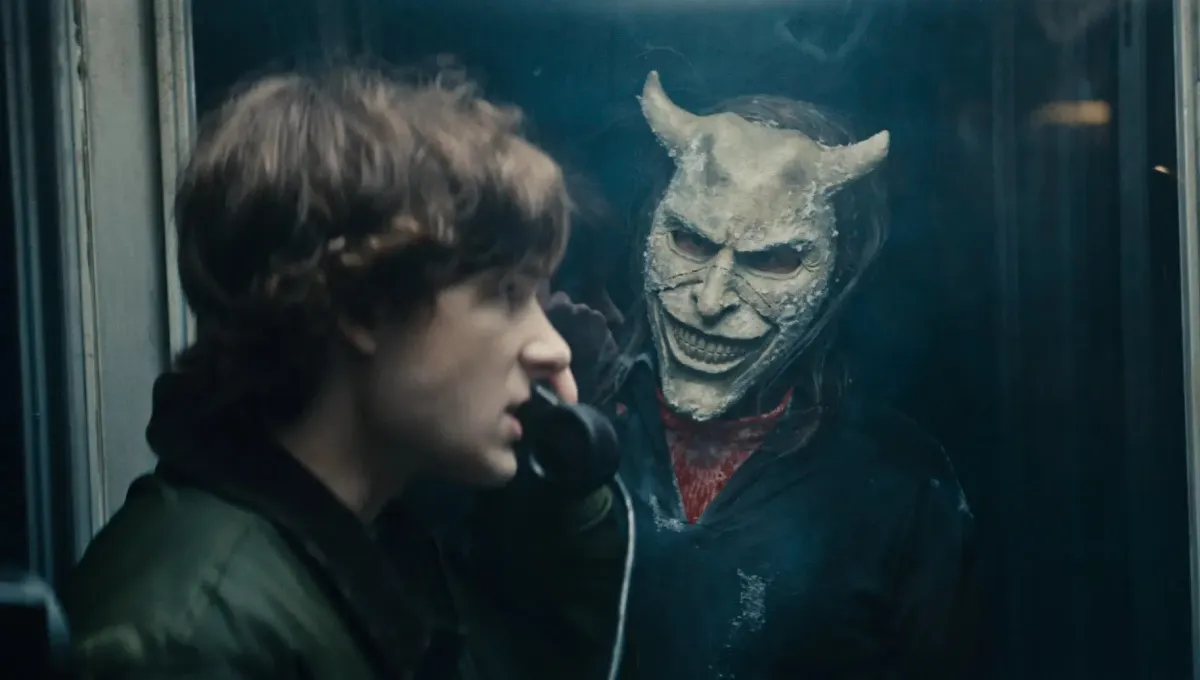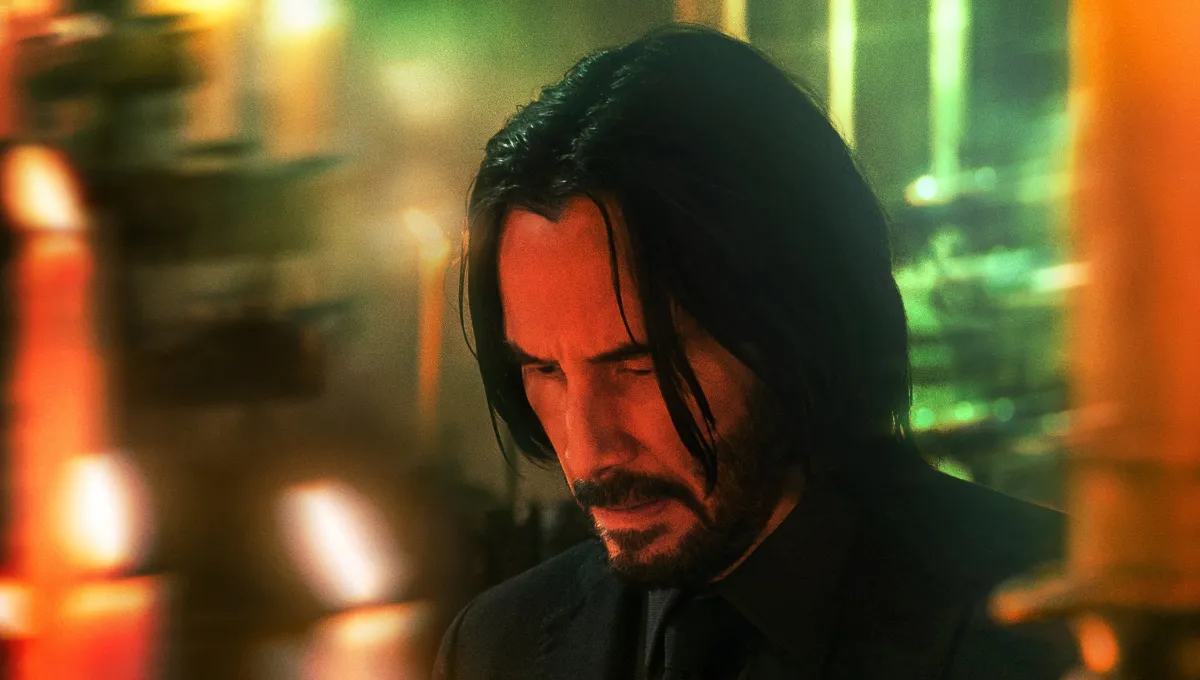If I Had Legs I’d Kick You is one of the most daring films of 2025 — a dark comedy, psychological drama, and slow-burn thriller wrapped into one haunting story about motherhood, identity, and emotional survival. Written and directed by Mary Bronstein and released by A24, the film stars Rose Byrne in what may be the boldest performance of her career. Beneath its absurd title lies a painfully realistic portrait of a woman whose world is falling apart, one therapy session at a time.
The Breaking Point of an Ordinary Woman
At the heart of the story is Linda, a therapist and single mother whose life is quietly imploding. Her young daughter suffers from a mysterious illness that no doctor can explain. Her husband has emotionally checked out and disappeared from their lives. Their apartment becomes unlivable after a ceiling collapse, forcing them into a dim motel room that feels more like purgatory than refuge.
Linda spends her days treating patients whose problems mirror her own. She listens, nods, and prescribes calm while privately unraveling. The movie’s cruel irony is that she can save everyone but herself. Each session exposes a deeper layer of her denial, shame, and exhaustion.
Bronstein’s writing turns this psychological freefall into something almost darkly funny. The humor is uncomfortable — laughter that tastes like panic. The line between sanity and absurdity blurs, and that’s exactly where the film lives.
Rose Byrne’s Fearless Transformation
Rose Byrne delivers a performance of astonishing precision. Known for her balance of comedy and drama, here she dives into raw emotional territory with no vanity and no filter. Byrne’s Linda is brittle, exhausted, furious, and painfully real. She doesn’t ask for sympathy; she demands to be seen.
The camera rarely leaves her face. Every nervous twitch, every half-swallowed sigh becomes part of the story. In one scene, she breaks down in front of a patient — not because of what’s said, but because of what isn’t. It’s a masterclass in restrained chaos.
Critics have called it Byrne’s most complex work yet, a portrayal of motherhood stripped of clichés. She embodies the version of maternal life that’s rarely shown onscreen: sleepless, resentful, terrified, yet still capable of love.
Mary Bronstein’s Vision: Chaos with a Purpose
Mary Bronstein doesn’t tell stories to comfort. Her direction is intentionally unnerving, claustrophobic, and deeply empathetic. The film unfolds like a panic attack — tight framing, muted colors, and long takes that refuse to cut away when things get awkward.
Bronstein has said that she wanted to “capture the invisible pressure” that modern women carry: to be perfect mothers, calm professionals, and flawless caretakers all at once. The film’s title, If I Had Legs I’d Kick You, becomes a dark metaphor for anger that can’t find a release.
The director plays with sensory overload — the constant hum of air conditioning, the sound of water dripping, the fluorescent motel light that won’t stop flickering. These details push the audience inside Linda’s deteriorating mind. Every mundane moment feels slightly off, every silence is heavy with dread.
An Unexpected Ensemble
While the movie revolves around Byrne, the supporting cast adds remarkable texture.
-
Conan O’Brien, in a rare dramatic role, plays Linda’s therapist — dry, distant, yet oddly human. His scenes with Byrne are some of the most tension-filled of the film, as therapy turns into emotional combat.
-
A$AP Rocky appears as James, a mysterious acquaintance whose calm confidence masks something predatory.
-
Danielle Macdonald and Christian Slater round out the ensemble as people orbiting Linda’s disintegrating world — each one exposing a different side of her unraveling psyche.
The casting is eccentric but perfect. Every actor plays slightly against type, which amplifies the film’s off-kilter rhythm.
Comedy in Collapse
One of the film’s greatest achievements is its ability to make the audience laugh in moments of sheer despair. The humor doesn’t relieve tension — it magnifies it. When Linda tries to cook dinner in the half-flooded motel kitchenette or attends a parent meeting while holding back tears, the absurdity becomes unbearable.
Bronstein understands that humor and pain share the same nervous system. We laugh not because something is funny, but because it’s too true. That’s why the movie’s comedy hits so hard: it’s the laughter of someone standing at the edge of the cliff.
The Visual Language of Anxiety
Cinematographer Lucian Johnston shoots the film with a mix of realism and expressionism. The camera stays close, sometimes uncomfortably so, creating a sense that the viewer is intruding on private moments. The lighting flickers between harsh daylight and cold artificial tones, reinforcing Linda’s mental instability.
Color plays a major role: sterile blues and washed-out creams dominate the palette, while flashes of red — lipstick, blood, a child’s toy — pierce through like warning lights. The visual language mirrors Linda’s inner disarray.
The sound design is equally unsettling. Everyday noises — breathing, tapping, distant coughing — are amplified until they become unbearable. There’s no escape, not for Linda and not for the audience.
Motherhood, Shame, and Survival
At its core, If I Had Legs I’d Kick You is a film about motherhood stripped of illusion. It asks what happens when nurture collides with rage, when love becomes a form of suffocation, when a woman realizes she can no longer meet everyone’s expectations.
Bronstein doesn’t frame motherhood as tragedy or triumph, but as endurance. Linda’s journey is not about redemption — it’s about survival with dignity intact. The movie captures that in-between space where mothers live: grateful yet overwhelmed, protective yet desperate for escape.
The therapist metaphor cuts deep. Linda helps others find clarity, yet she’s trapped in her own spiral of guilt and self-blame. Her sessions become mirrors reflecting her own failure to heal.
A24’s Signature and the Film’s Reception
As expected from an A24 release, the film walks a fine line between indie experimentation and emotional universality. It’s not an easy watch, but it resonates long after it ends. Early festival audiences called it “hilariously horrifying” and “the year’s most honest depiction of mental overload.”
The film premiered at the Sundance Film Festival to standing ovations and later screened at Berlin, where Rose Byrne earned the Silver Bear for Best Leading Performance. Critics hailed Bronstein as one of the most original voices in modern American cinema.
In theaters, it quickly built a cult following, particularly among viewers who recognized their own anxiety in Linda’s fractured reflection. It’s the kind of movie people debate for weeks — half of them shaken, half of them liberated.
A Title That Says It All
“If I had legs, I’d kick you.” The phrase, absurd and childlike, becomes a mantra of frustration and defiance. It represents the fury of being powerless — the desire to fight back when there’s no energy left to move.
For Linda, it’s a whisper of rebellion. For Bronstein, it’s a declaration that anger has value, that emotional chaos is not weakness but proof of being alive.
By the end, the audience doesn’t get neat closure. There’s no miraculous cure, no sentimental fade-out. What remains is a woman who finally stops pretending — standing, trembling, but still breathing.
If I Had Legs I’d Kick You is not a comforting film. It’s a mirror held too close to the face. Through Rose Byrne’s fearless performance and Mary Bronstein’s uncompromising vision, it exposes the invisible labor, emotional exhaustion, and messy beauty of motherhood. It’s funny, tragic, absurd, and painfully real — a movie that leaves you uncomfortable, reflective, and strangely understood.
In a cinematic landscape crowded with glossy perfection, If I Had Legs I’d Kick You dares to be messy. It’s a film about the chaos of being human — and that, more than anything, is its power.
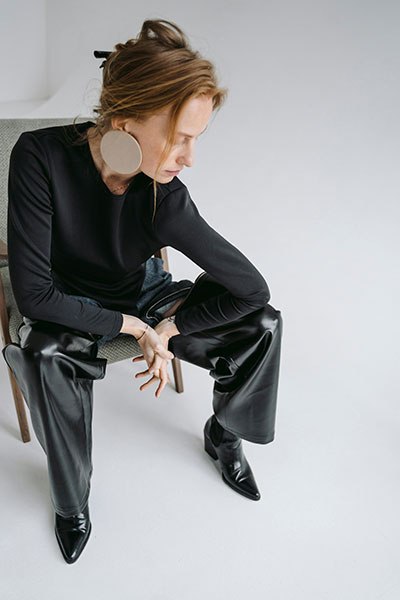
Grace Whitmore is a beauty and lifestyle editor at Nestification, exploring the intersection of modern femininity, quiet luxury, and emotional design. Her work focuses on how aesthetics, mindfulness, and self-expression shape today’s idea of calm confidence — where beauty becomes a state of mind.
Based in New York · [email protected]

